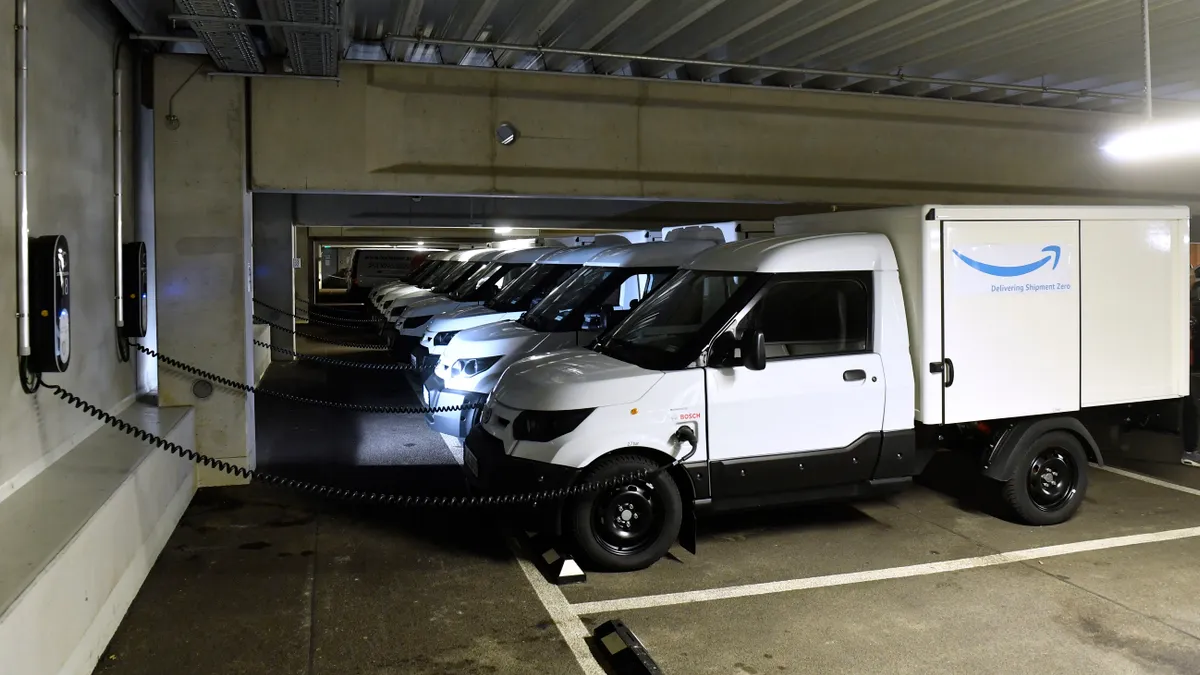Dive Brief:
- Amazon, AT&T, Siemens and Lime are among the founding members of a new partnership seeking to accelerate the transition to electric vehicles (EVs) through strategic collaboration.
- The Corporate Electric Vehicle Alliance will leverage combined demand to push for production of new EV models and infrastructure, especially in the delivery and shipping sectors. The members will also push for state and federal policies to promote EVs.
- The alliance is organized by the nonprofit Ceres, with additional founding members including Clif Bar, Consumers Energy, Direct Energy, Genentech, LeasePlan, DHL and IKEA North American.
Dive Insight:
Automakers have stepped up investments in passenger EVs, but availability of heavy duty and commercial vehicles is still limited. With trucks carrying more than 70% of the nation’s freight, cleaning up the sector could mean significant gains in greenhouse gas emission reductions, and could result in significant savings on fuel for major retailers.
Many companies in the alliance have already made individual electrification and climate plans. Amazon, for example, ordered 100,000 electric delivery vans this fall and is working toward 100% renewable energy by 2030; DHL has committed to net zero transportation emissions by 2050 and wants to have 70% of its first- and last-mile operations done in green vehicles by 2025. But the collective power of the companies can compel significant changes from both policymakers and auto companies, said Ceres Vice President of Climate and Energy Sue Reid.
"When all of these companies come together and say they are committed, that sends a much more robust market signal that we can leverage with manufacturers," Reid told Smart Cities Dive. "Manufacturers have not responded with the scale and availability of vehicles to make this transition seamless. Pulling together these companies across different sectors and different vehicle needs can send a collective signal that demand is large and growing."
The membership — which is expected to grow — reflects a diverse set of needs and companies, which can help to encourage a variety of new EVs and charging platforms. For instance, micromobility company Lime joined the alliance to push for charging infrastructure to ensure its operational vehicles — which move fleets of e-scooters and bikes — can be electric.
"We want to do everything we can to back up our operations with the cleanest fleet possible," said Andrew Savage, Lime’s vice president for sustainability.
The alliance’s policy advocacy fits in with a larger discussion from cities and governments to clean up commercial transportation emissions, even as delivery from e-commerce has boomed. New York, for example, is piloting the use of e-bikes for some deliveries in partnership with Amazon, DHL and UPS, while California is writing new rules that would move the state away from diesel-powered trucks.











